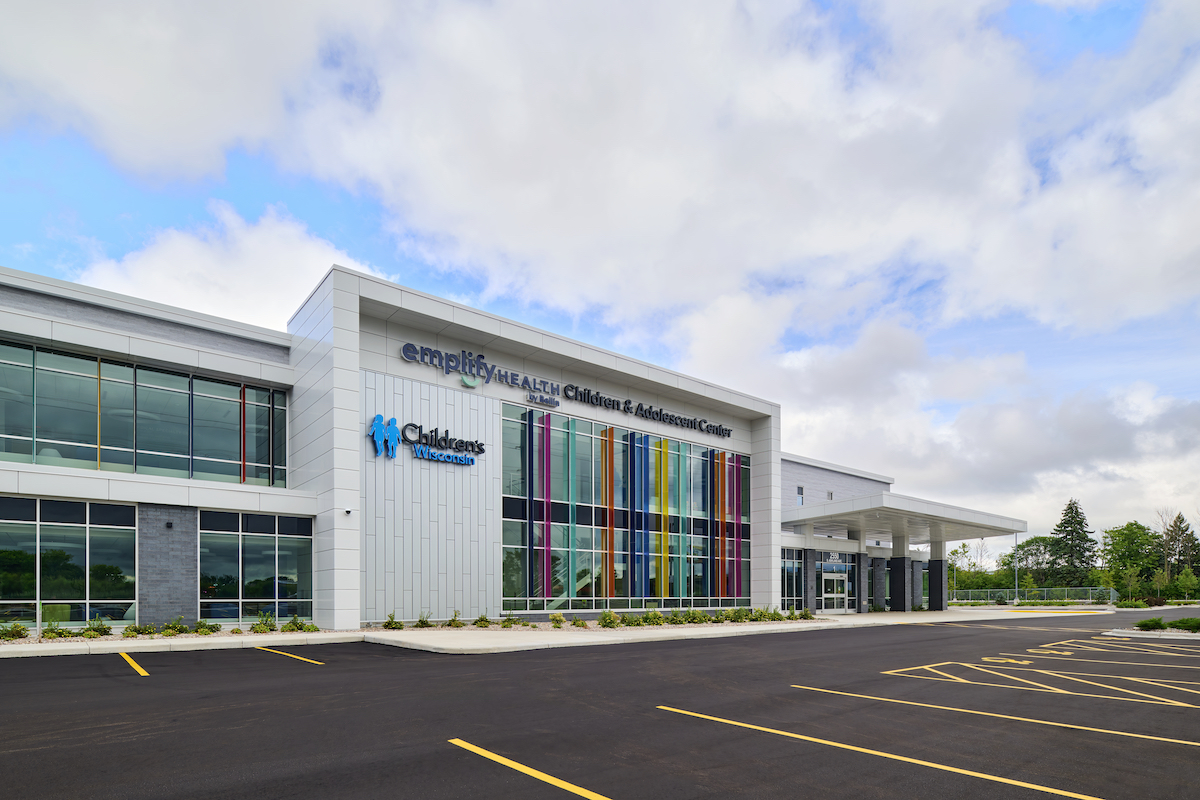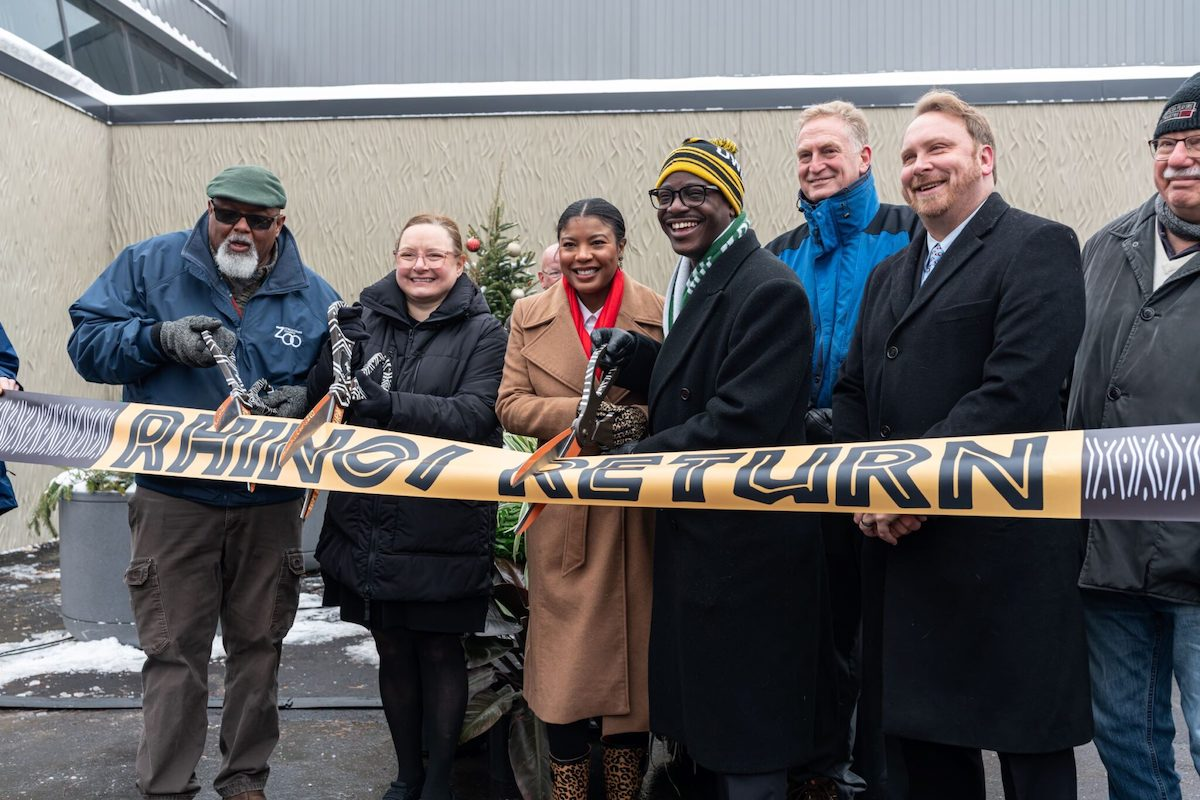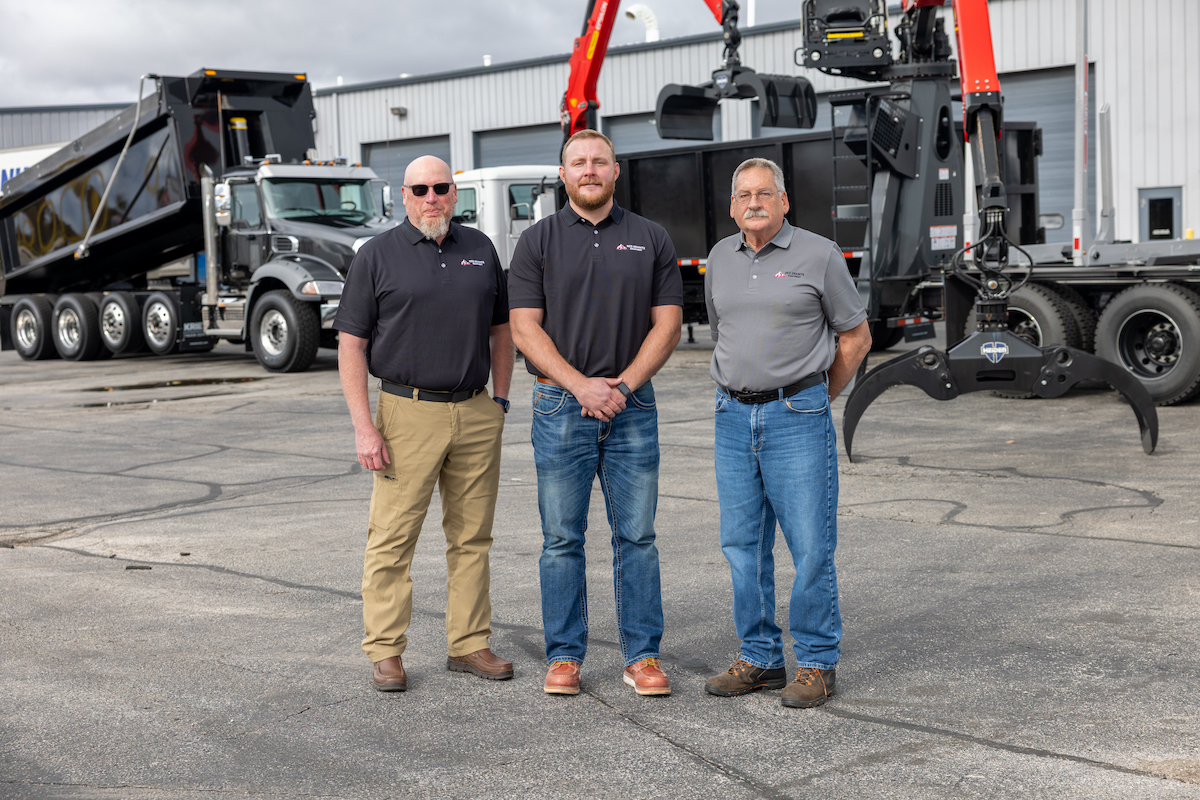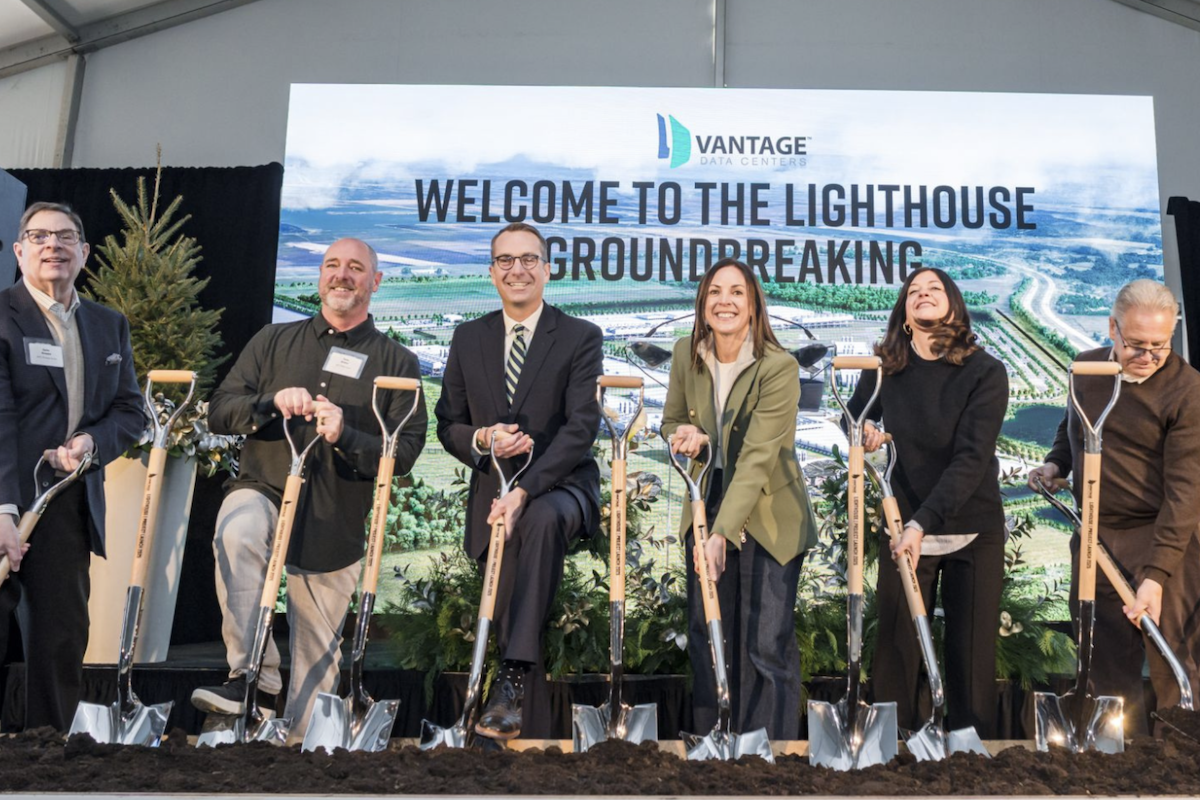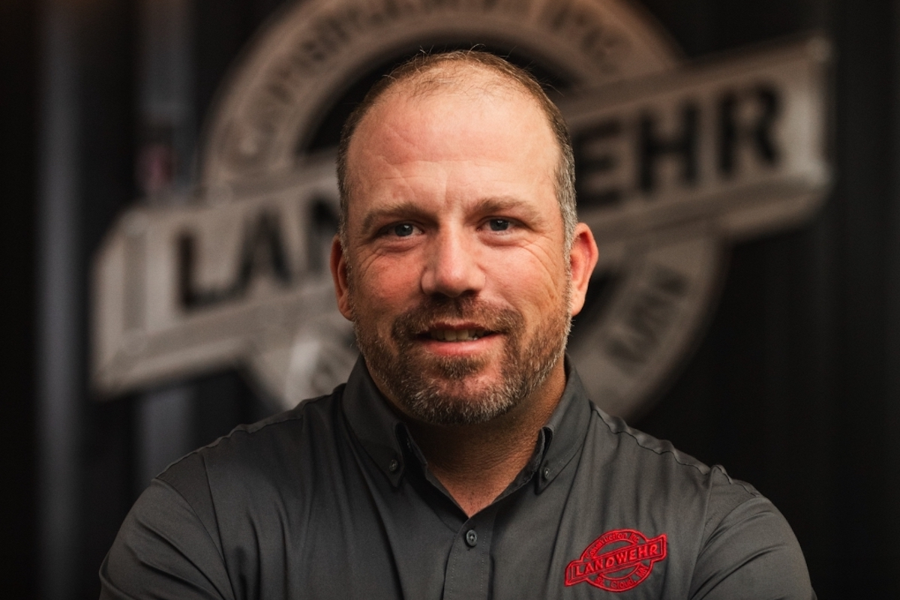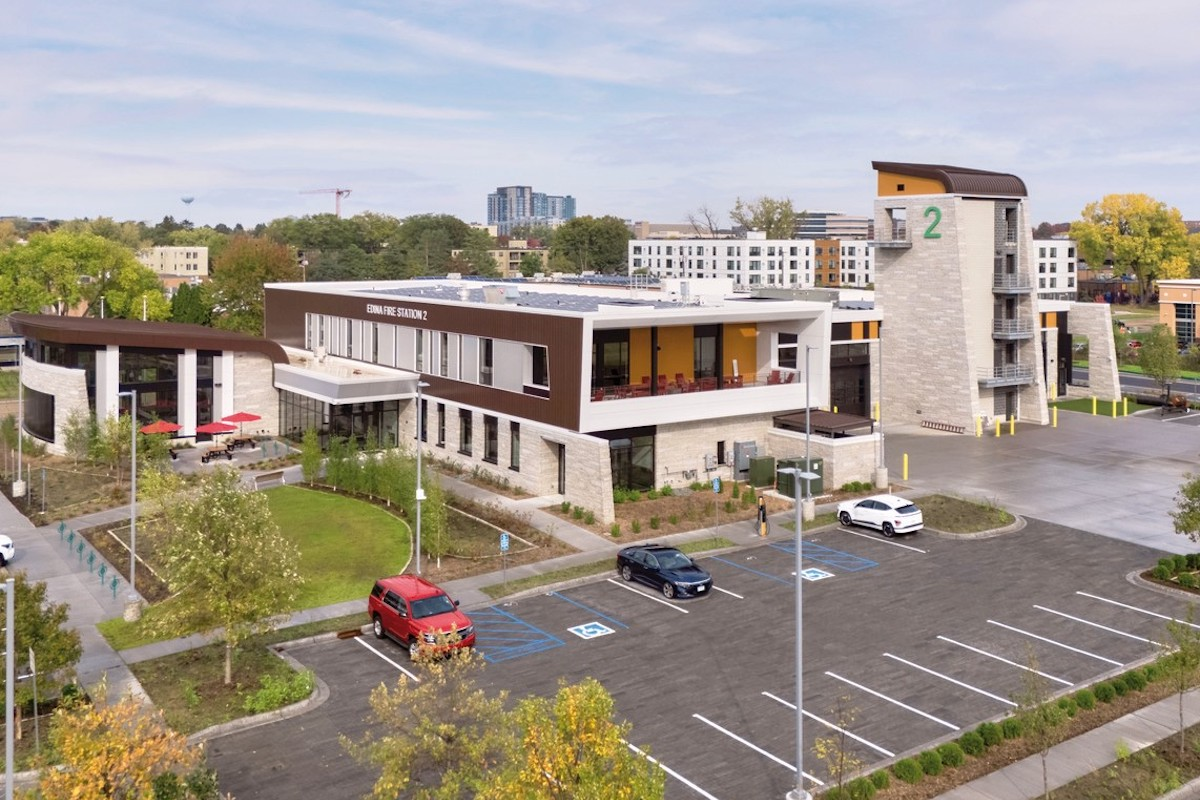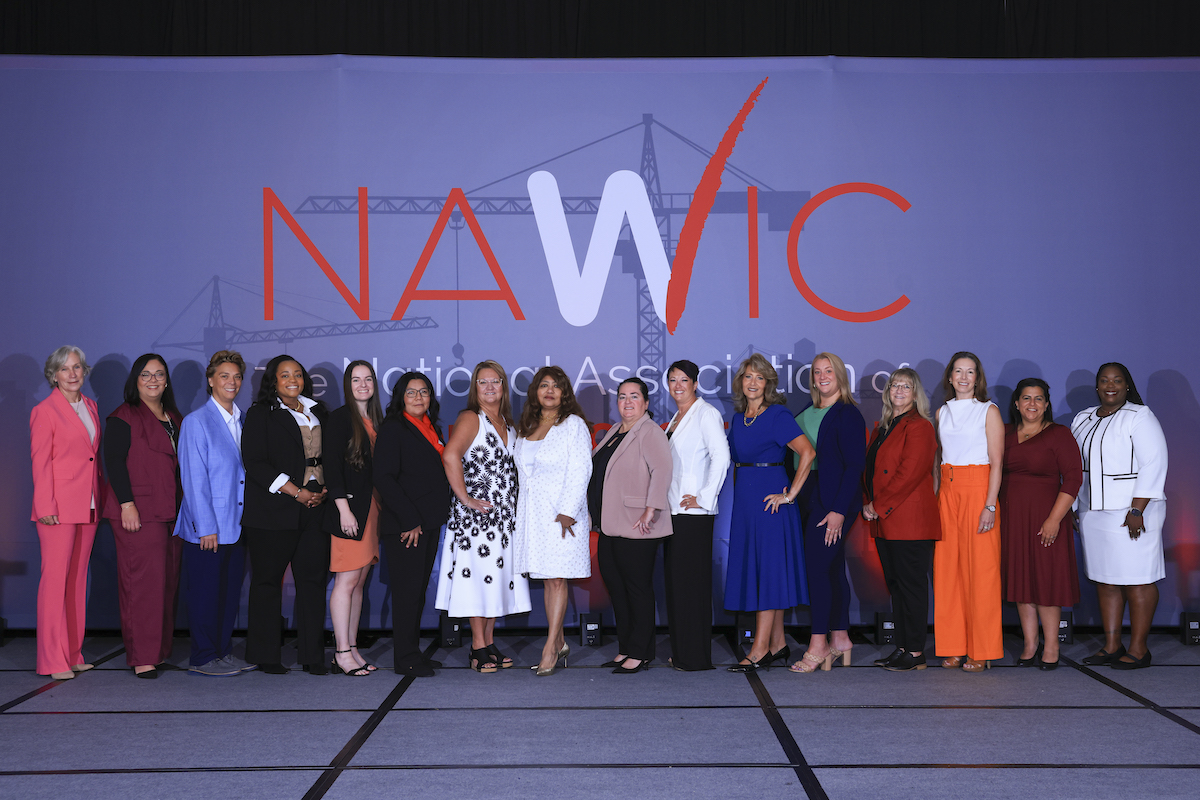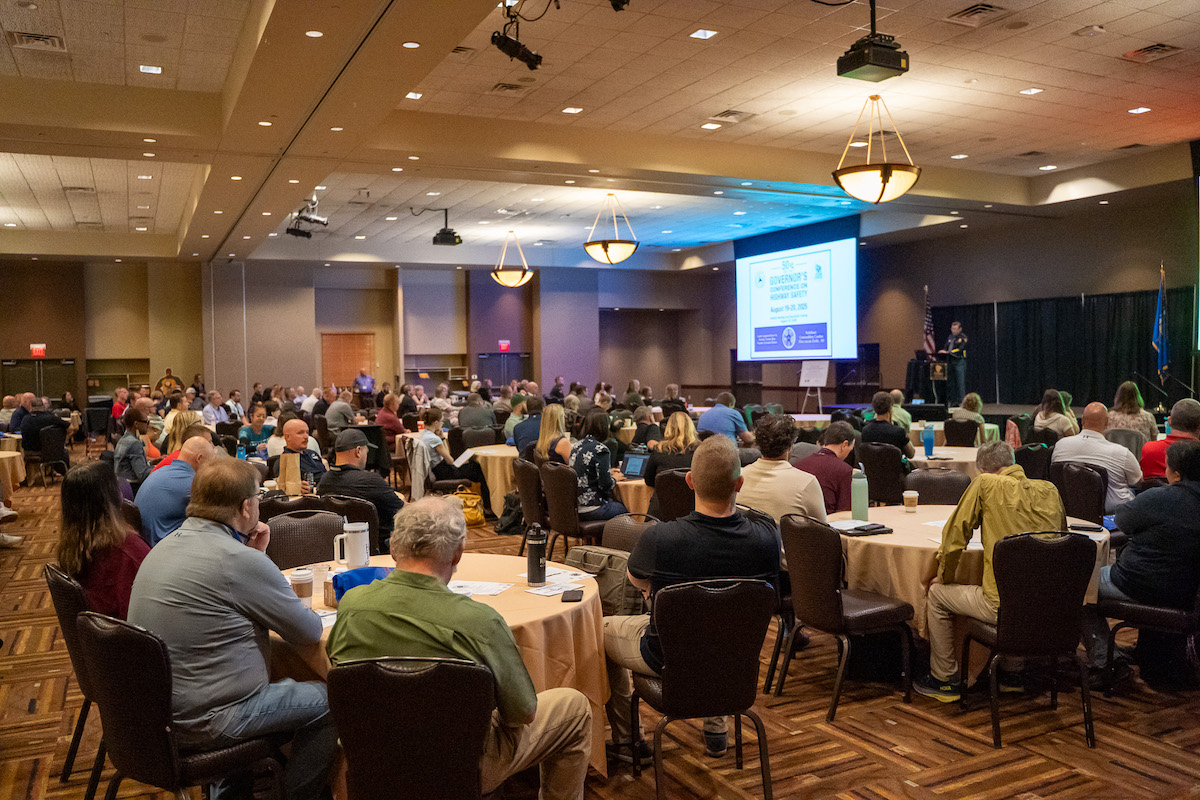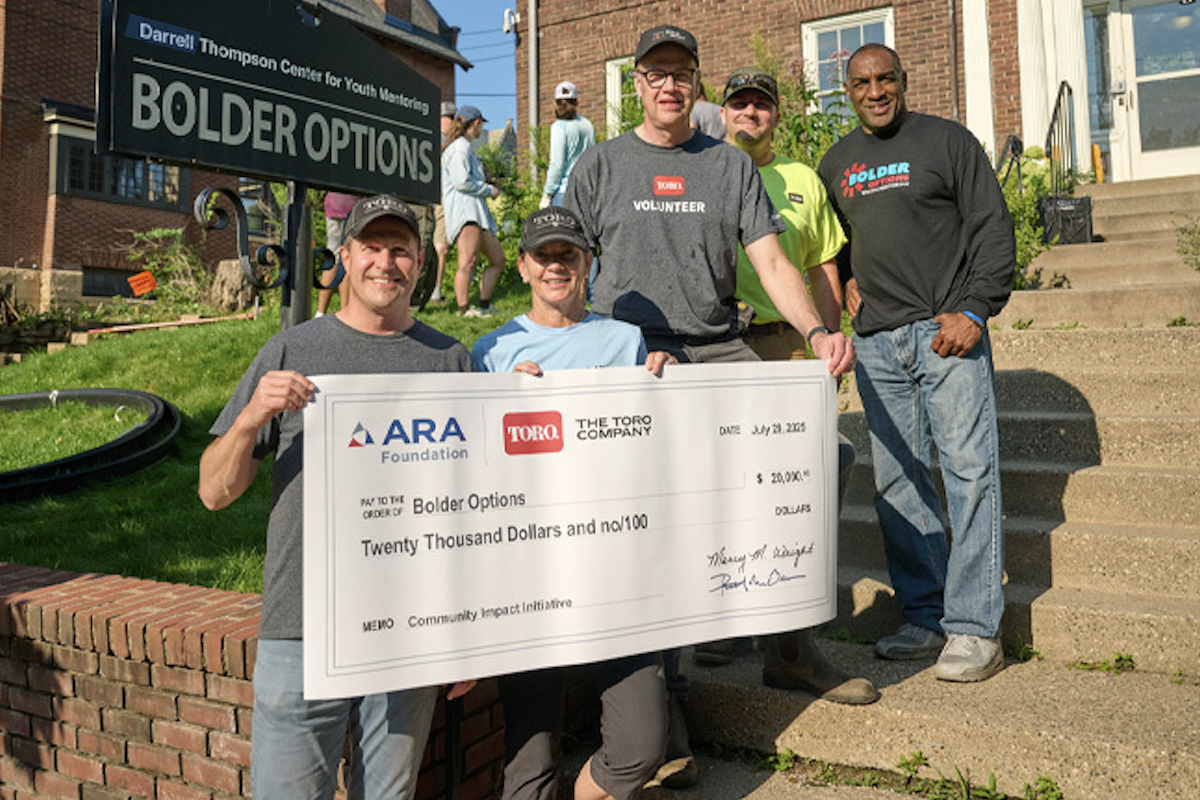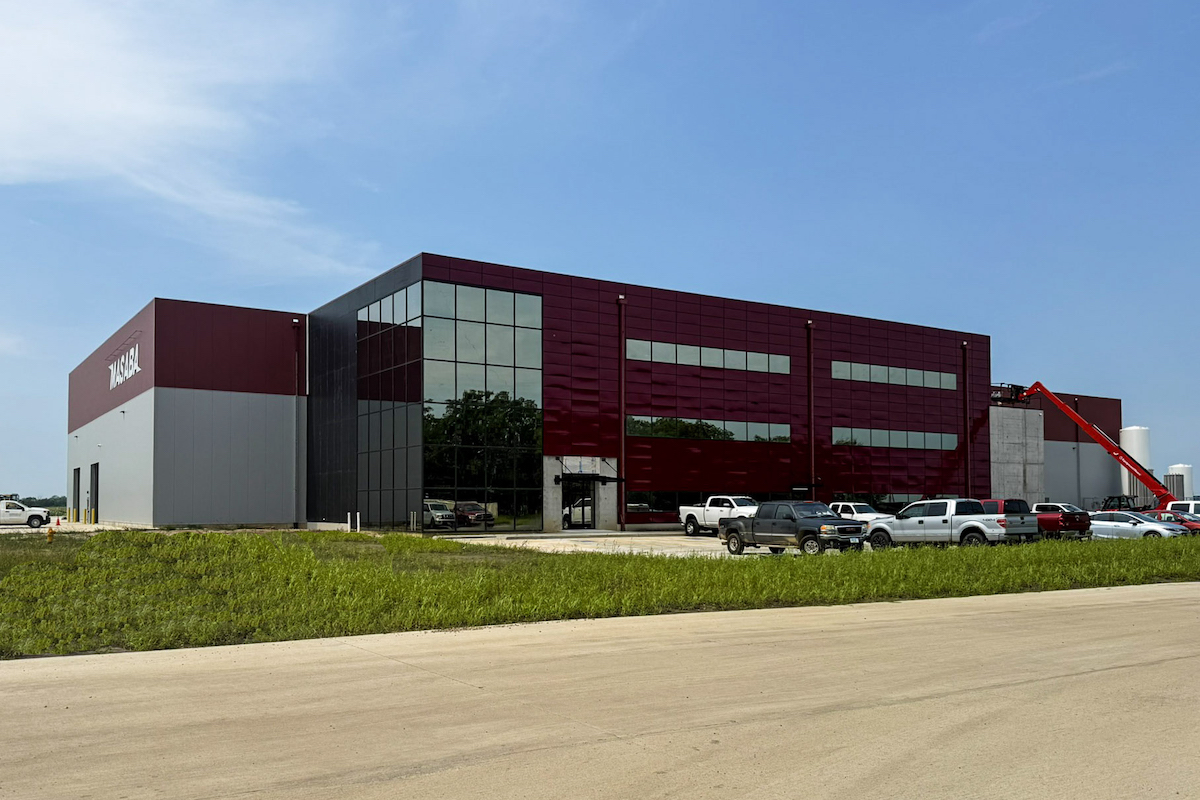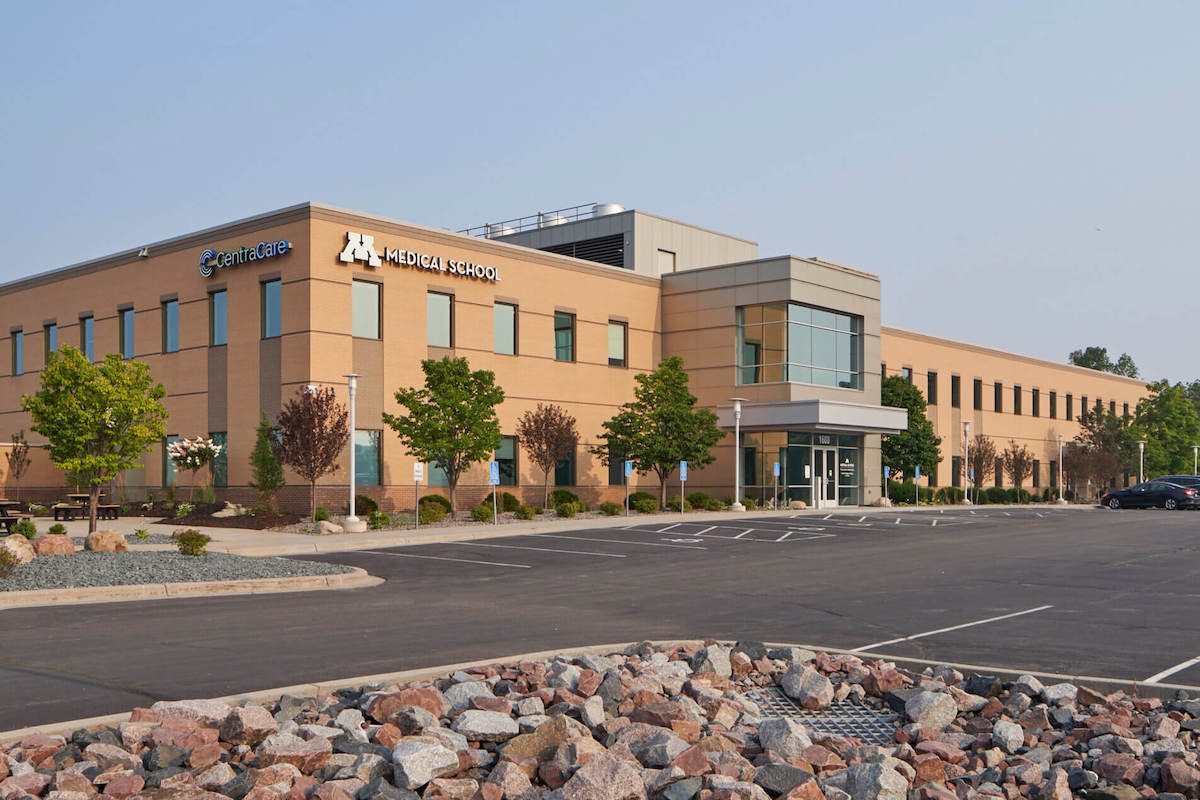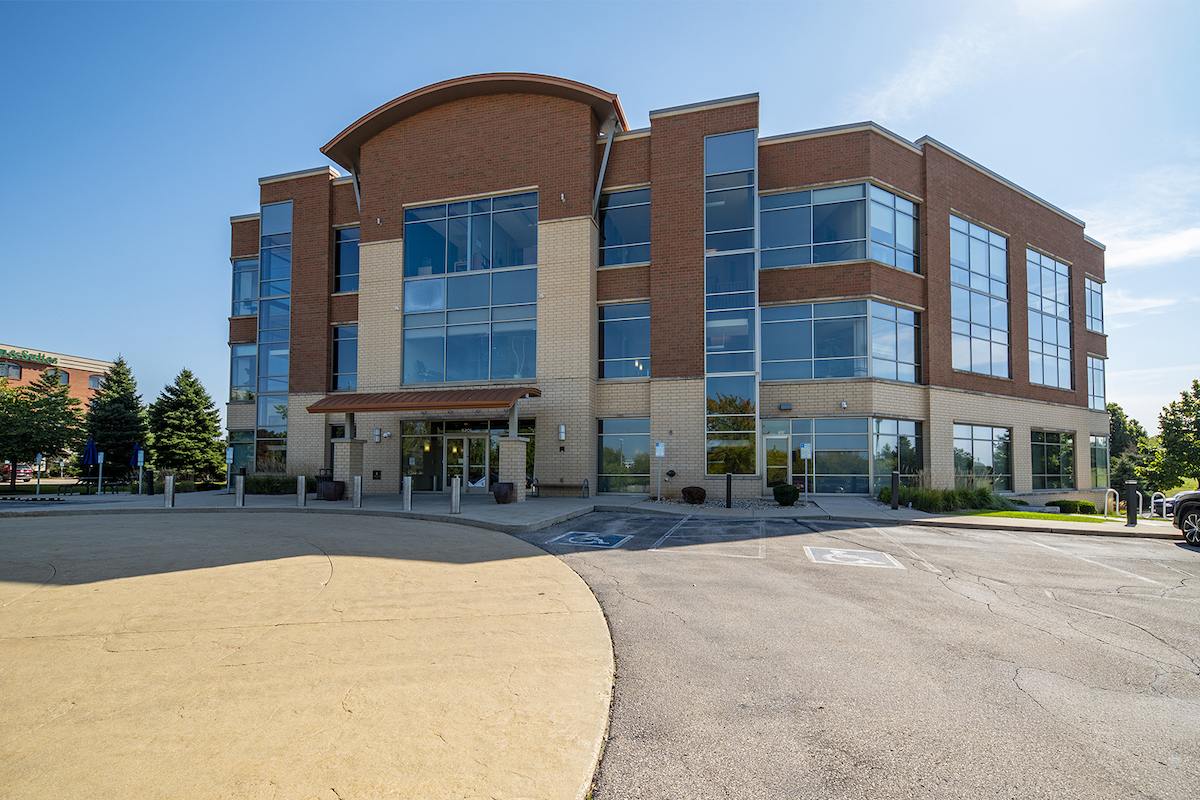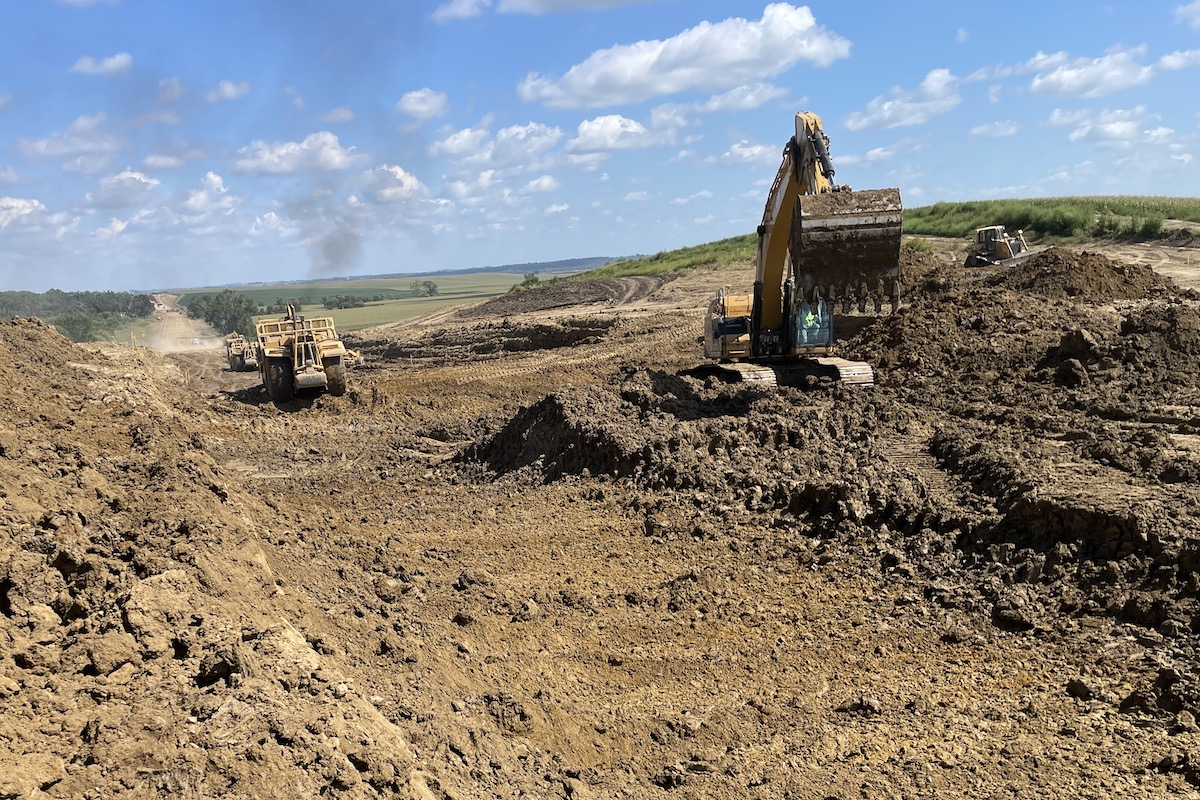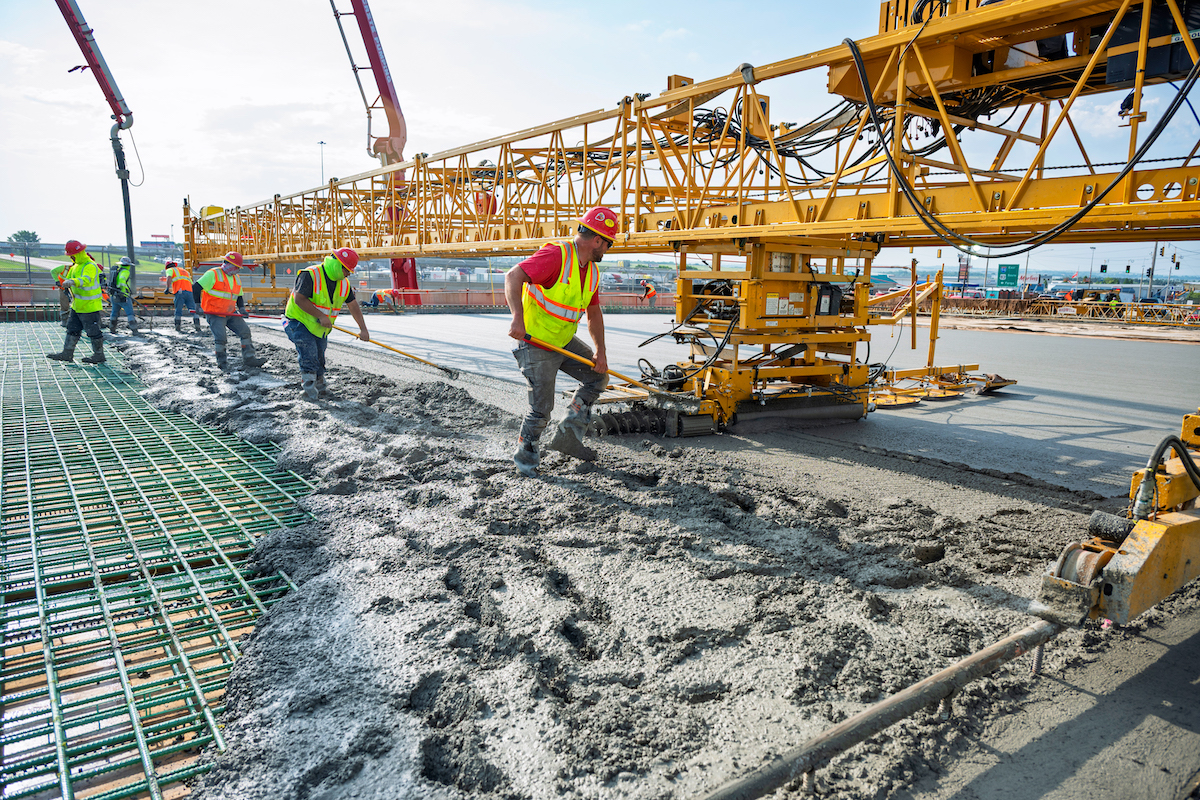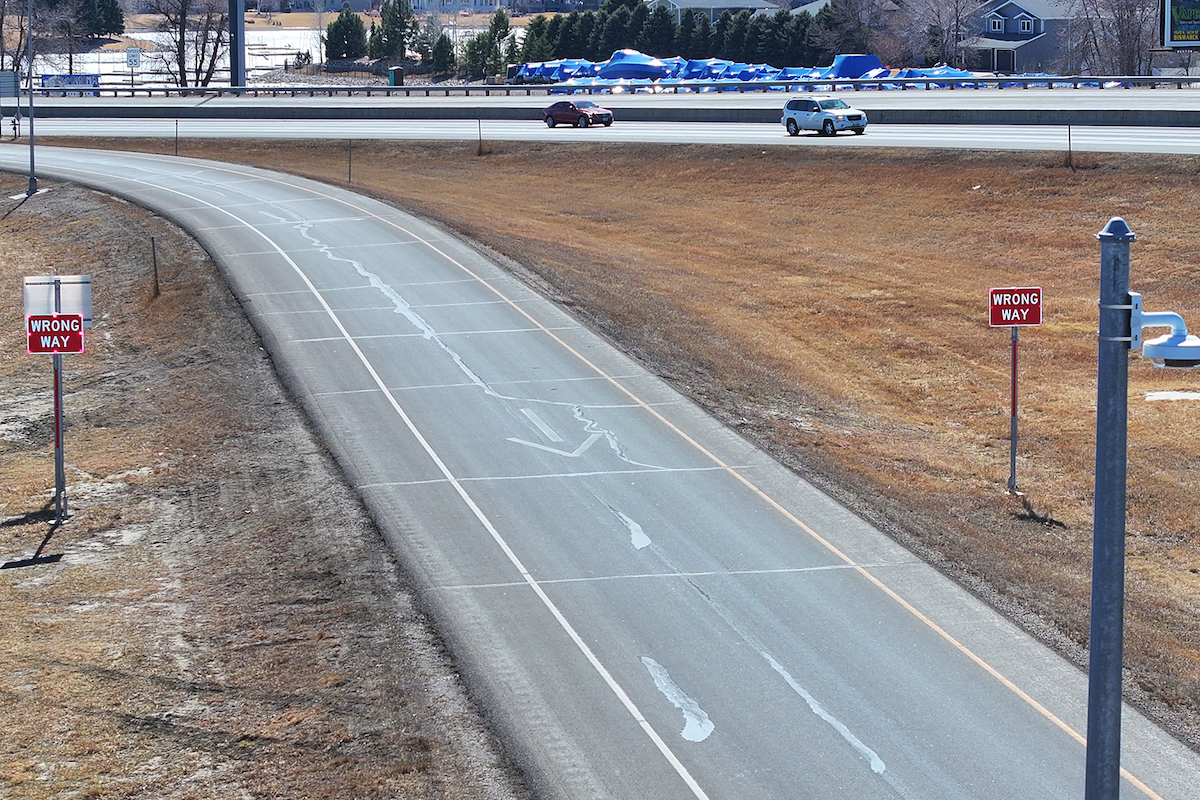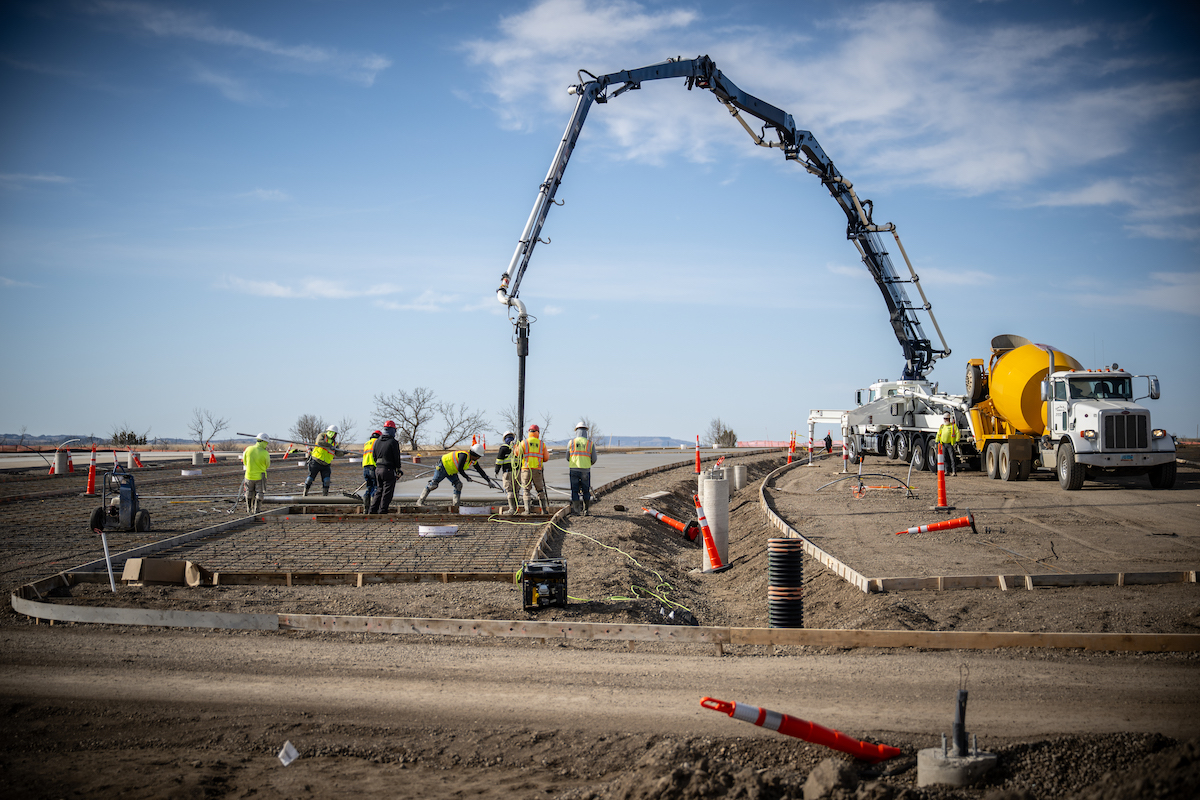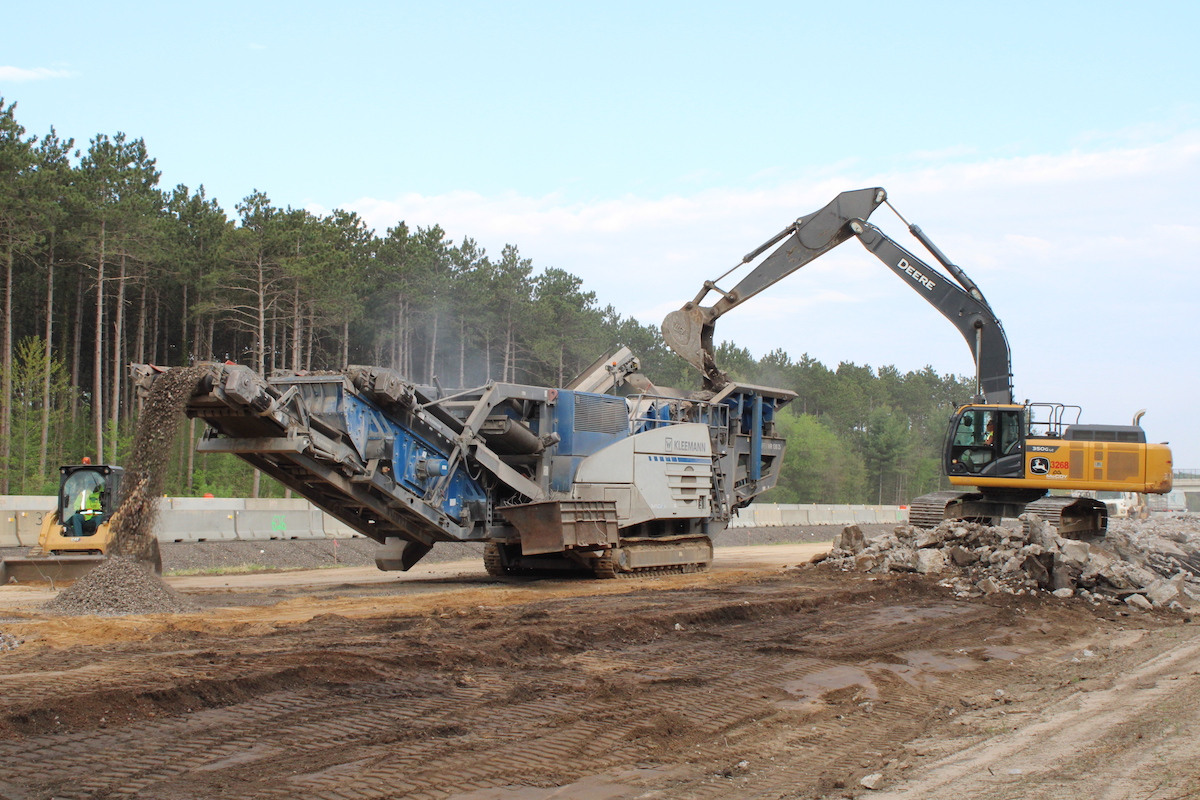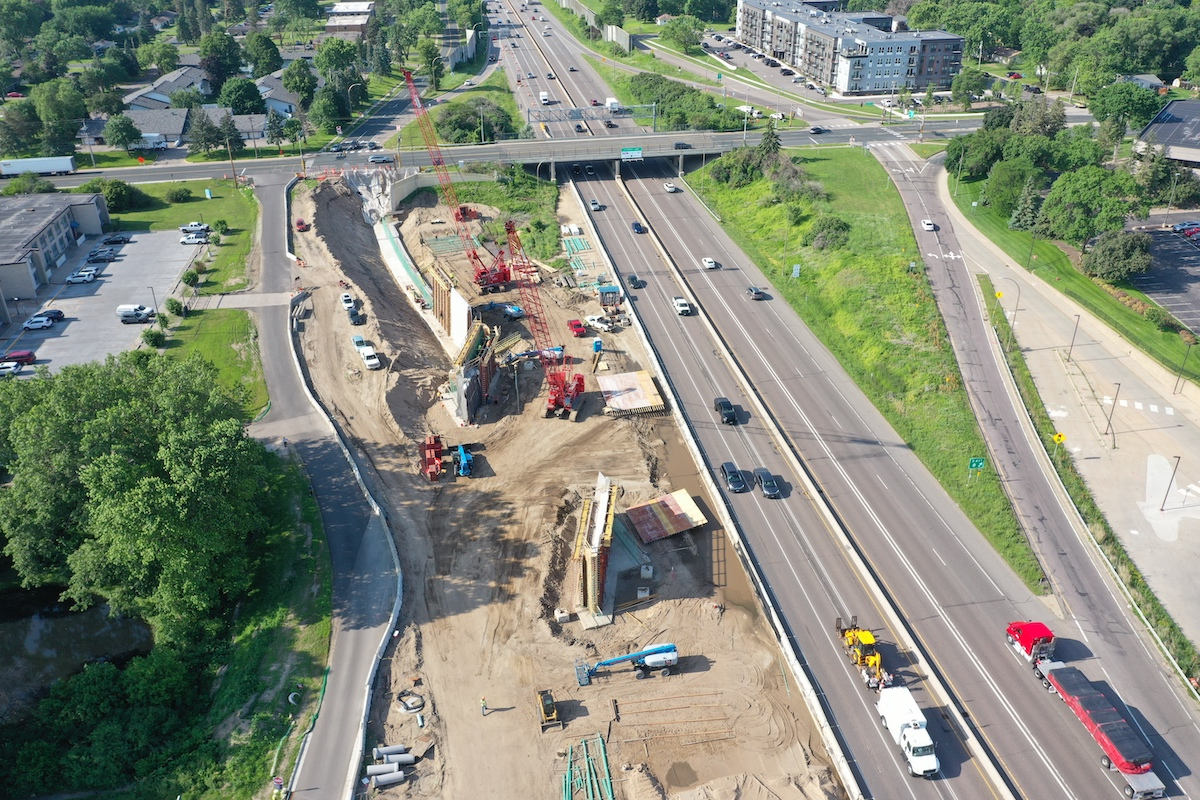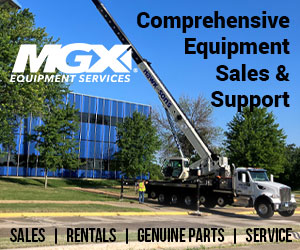Because the average daily traffic count in the area is 29,000 vehicles, ARDOT felt a need to replace the bridges quickly and to cause the least amount of disruption to commuters as possible. So, ARDOT considered how they could accelerate the process.
According to Joe Plyler, a Resident Engineer for ARDOT who oversaw the job from an administrative and construction standpoint, the contractor was experienced in such construction as were certain people within ARDOT.
Just 170 feet long and a single span, the original bridges themselves were small and simple. However, the new bridges are updated and wider. The original bridges were two lanes, but the new bridges are three lanes. Plyler says the design life of the new bridges is 75 years, and the extra lanes will allow for future growth. Each of the new bridges weighs 12,000 tons.
In order to have enough room for the widened bridges, the crew built the extra lanes to the median. Therefore, the two new bridges are close together – just 12 feet apart where before they were 50 feet apart.

| Your local Komatsu America Corp dealer |
|---|
| Road Machinery and Supplies Company |
Crews were building the substructures under and out to the sides of the current structures to be prepared for when the new structures would be slid into place. “They had to work closely to the road, which is dangerous as there are potential issues such as debris being thrown up from traffic,’ said Plyler.
In addition, there was no deceleration lane or lane closure to work from, though there were restrictive hours at nighttime. However, the bulk of the work took place during the day.
The proximity of the work and small work area also meant moving materials in and out of the area was a challenge. With a tight space to work in, as well as interstate speed traffic, logistics were a challenge.
The contractor built a supercap underneath the existing bridges that connected to the median. It’s one long continuous cap. In addition to the cap, there are 6-foot girders to support the bridge. Temporary caps were built to support the new bridges.
Then it was time to demo the bridges, which ARDOT did one at a time to keep traffic moving. After the demolition, which took 24 hours, the tracks for new bridge were cleaned and the slide began.

| Your local Trimble Construction Division dealer |
|---|
| SITECH Dakotas c/o Butler Machinery |
| Fabick CAT/WI |
Prior to sliding the bridges, they were lifted about half a foot in the air, installed on temporary jacks, and placed on a high-density sliding track that was 2 inches thick and anchored to the caps. To lessen the friction, the tracks were lubricated with Dawn dish soap.
The first slide took about 12 hours and the second one took nine hours. The second was faster as there were fewer problems with the sliding tracks. It took just eight days for the first bridge (seven days for the second) from the time the bridge was demoed till the new bridge was slid into place and open to traffic. Plyler notes there was a bit of lag time in between the two bridges as the crew had to finish the superstructure of the second structure.
The new bridges are 20 feet shorter than the original. “If the new bridges were the same length, we wouldn’t have been able to build the new substructure under the existing bridge,” said Plyler. “It was only by shortening the bridge that we were able to build the new cap under the existing bridge.” The extra space was backfilled with stone and concrete slabs.
“Because the approaches to the bridges were short – the total length of the job was 1,300 feet – the bulk of the work one the job was the bridges,” said Plyler. “And unless there’s a design bust with the bridge quantities, there should not be an issue.” This left few opportunities for change orders overruns and major changes.
With the I-30 bridges at De Roche Creek project essentially complete, the public will have a more reliable commute. Plus, ARDOT will not need to utilize manpower to provide regular maintenance to the westbound bridge. The completion of the project also gives Plyler and all of ARDOT with another option to accelerate bridge construction. While Plyler says the crew was concerned about the process since it was unknown, it went smoothly, and he thinks it’s one ARDOT will use again in the future.

| Your local Volvo Construction Equipment dealer |
|---|
| Nuss Truck & Equipment |













